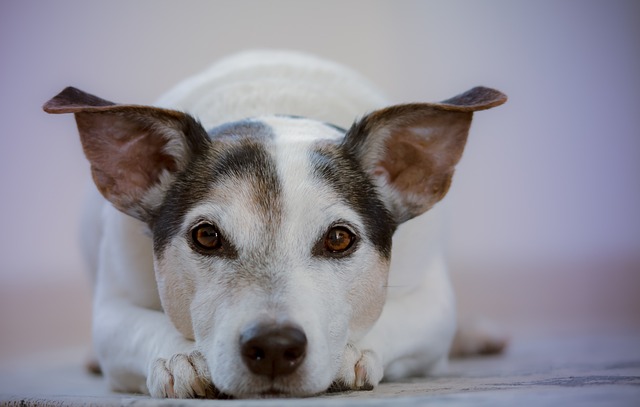
what will seizures do to a dog
Watching your dog experience a seizure is a heart - wrenching sight for any pet owner in the U.S. As a new dog parent, you may be left wondering: What will seizures do to a dog?
You’ve just noticed your dog showing concerning symptoms like a swollen belly, restlessness, and unproductive vomiting. Panic sets in as you wonder: how long can dogs survive with GDV? For new dog owners in the U.S., Gastric Dilatation - Volvulus (GDV), or bloat, is a terrifying and life - threatening condition. Understanding the timeline and what to do can be the difference between life and death for your furry friend.
GDV occurs when a dog’s stomach fills with gas, fluid, or food, causing it to expand. In severe cases, the stomach twists, cutting off blood flow to vital organs. This lack of blood supply leads to tissue damage and organ failure. Once GDV develops, the clock starts ticking rapidly. Without treatment, dogs can start to experience irreversible damage within just 30 minutes to 2 hours. The longer the condition goes untreated, the higher the risk of shock, cardiac arrest, and ultimately death. Statistics show that if not treated within 4 - 6 hours, the survival rate drops significantly, highlighting the urgency of immediate action.
If you suspect your dog has GDV, don’t waste a single second. Time is of the essence. Call your veterinarian or rush your dog to the nearest emergency animal hospital immediately. While waiting for professional help, keep your dog calm and avoid forcing them to drink or eat, as this can worsen the condition. At the hospital, the vet will typically perform emergency surgery to relieve the pressure in the stomach, untwist it if necessary, and sometimes tack the stomach to the abdominal wall to prevent future episodes. After the surgery, your dog will need intensive care and a carefully monitored recovery period.

In the American pet - owning community, being prepared for emergencies like GDV is part of responsible pet ownership. Ensure your dog’s vaccinations are up - to - date as required by state law, as a healthy immune system can better withstand the stress of a major medical event like GDV. When living in apartments, be mindful of your dog’s eating habits and exercise routine to help prevent GDV in the first place. During community walks, always keep an eye on your dog’s behavior and health. Remember, positive training methods to encourage slow eating and proper post - meal rest can help reduce the risk of GDV. Punishment - based approaches won’t solve the problem and can cause unnecessary stress to your dog. Also, always clean up after your dog in public areas, as good pet - owner etiquette is important for the community and can also help you build a good relationship with local vets and pet services, which might be crucial in an emergency.
GDV is a medical emergency that requires immediate attention. By knowing the signs, acting quickly, and following your vet’s advice, you can give your dog the best chance at survival. Every second counts when it comes to GDV, so trust your instincts and get your dog the help they need right away.

Watching your dog experience a seizure is a heart - wrenching sight for any pet owner in the U.S. As a new dog parent, you may be left wondering: What will seizures do to a dog?

Picture your Beagle, Charlie, suddenly collapsing in your New York apartment kitchen. His legs paddle wildly, jaw chomping at the air, eyes glazed—terrifying, helpless, and utterly disorienting.

Discovering your dog injured is a heart - stopping moment. Panic might set in, but your calm actions in these crucial moments can make all the difference, both for your pet’s well - being and in complying with animal welfare regulations.

You’ve just noticed your dog showing concerning symptoms like a swollen belly, restlessness, and unproductive vomiting. Panic sets in as you wonder: how long can dogs survive with GDV?

You’ve welcomed a new dog into your home, and as you watch them shy away from visitors or cower at the sight of a friendly face on a walk

For many dog owners, skipping nail trims might seem like a harmless oversight, but it can snowball into serious issues—both for your pet’s health and your legal responsibilities.